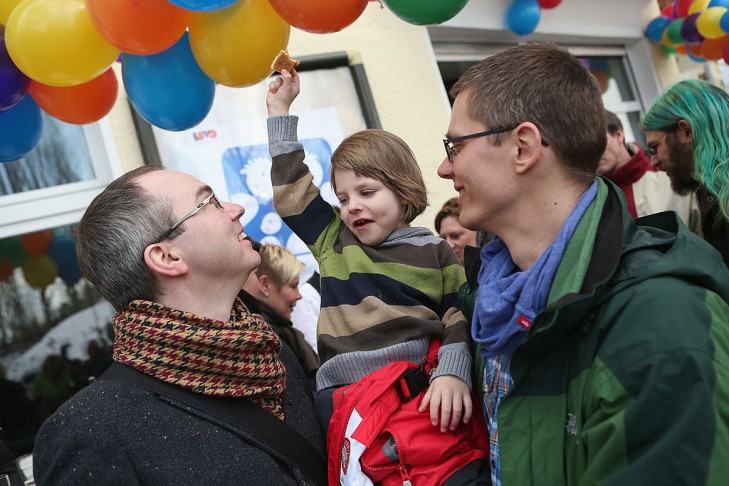This post was originally featured on Fresh Ideas from HBI: The HBI Blog.
It is difficult today to describe a Jewish family as traditional. The stereotypical picture of a stay-at-home mom, breadwinner dad and three children no longer applies.
Today, Jewish families defy neat categories as they reflect and draw influence from the shifting norms of society. Some families still resemble what we once considered “typical,” but we also see families with one parent, with LGBTQ parents, older parents and unmarried parents. We see families with children conceived through reproductive technology that may have more complex genetic heritage. We see people having fewer children, children later in life or no children at all.
What does this all mean for Jewish family values? My new book, Love, Marriage and Jewish Families: Paradoxes of a Social Revolution (Brandeis University Press), shows how many transformed Jewish families retain important traditional Jewish family values. The book presents new research showing that families, friends, classmates and fellow workers, as well as religious, political, and social friendship networks create values and expectations that deeply and measurably influence the behavior of individuals—often in ways they do not fully realize. The tensions and negotiations, raised by different family structures and social norms, nourish the Jewish family in surprising ways.
How do these social norms come into play? The most obvious example comes to us daily through the presidential election cycle where both liberal and conservative thinkers have a lot to say about transformations in family life. Liberals and conservatives often disagree about the needs of individuals versus the needs of families and societies. Some conservative thinkers emphasize traditional family life, urging family members, especially women, to sacrifice their individual goals for the sake of the whole family and for the benefit of the larger society. Some liberal thinkers, on the other hand, prioritize individual flowering and look skeptically at the good-of-the-whole-family prescription, noting that historically the “sacrifice” of personal was typically delegated to the wife/mother.
How drastically has the Jewish family changed? In the 1950s, Jews achieved near “universal marriage” well before age 30 and on average had almost three children per family. Today, almost three-quarters, 74 percent, of American Jewish men and 43 percent of American Jewish women between the ages of 25 to 34 are not married, according to the recent Pew Foundation research study, A Portrait of Jewish Americans (2013).
By contrast, Israeli Jews today—including non-religious or Hiloni Jews—are traditionally pro-natalist, influenced by social norms, which make the Israeli fertility rate the highest in the developed world. Perhaps surprisingly to some readers, Hiloni Israelis have 2.7 children on average, more than Modern Orthodox Jews in New York (2.5).
What does the research show? We learn that today’s Jewish families construct purple strategies, drawing on both liberal goals and conservative values. Their negotiations between these values systems actually reinforce their families and make them more resilient.
Despite dramatic metamorphoses of Jewish households, Jewish children—their presence, absence, or status—are key both to Jewish connections today and continuity with the Jewish future, as Love, Marriage and Jewish Families shows in often surprising details, in essays by thirteen scholars and myself in America and Israel. Rather than the number of parents, or their sexual orientation, or the pre-birth conception history of the children, or the particular division of gender roles that parents have negotiated, the project of raising unambiguously Jewish children is one of the essential commonalities that makes a Jewish family “traditional” and sustains what we may call conservative “Jewish family values”—even when those families are actually made possible by liberal social, governmental, and religious policies.
Confounding political rhetoric the real—purple–lives of American Jews today intertwine conservative values and liberal goals to foster a creative tension that nurtures flexibility and viability, and creates a stronger— and more diverse—unambiguously Jewish families.
This post has been contributed by a third party. The opinions, facts and any media content are presented solely by the author, and JewishBoston assumes no responsibility for them. Want to add your voice to the conversation? Publish your own post here. MORE


